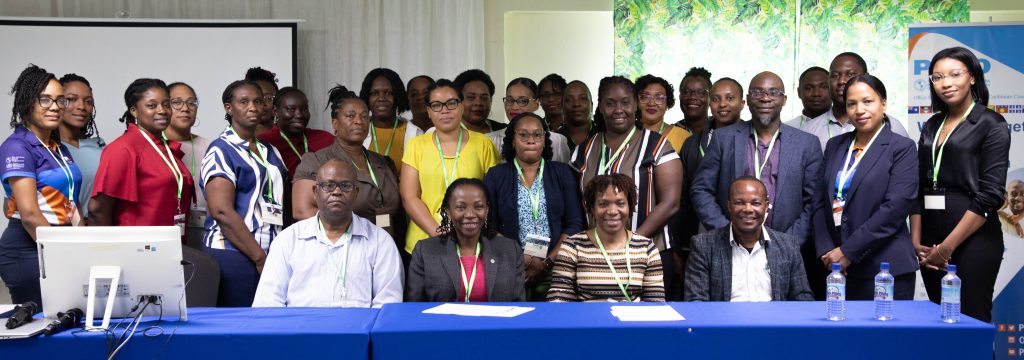
PRESS RELEASE
(Roseau. September 9, 2024)-The Ministry of Health, Wellness, and Social Services, through its partnership with the Pan American Health Organization (PAHO) and the Acute Psychiatric Unit (APU) of the Dominica China Friendship Hospital, is conducting a three-day training for healthcare providers to implement the Mental Health Gap Intervention Guidelines (mhGAP-IG).
The mhGAP-IG is a program developed by the World Health Organization (WHO) to scale up care for priority mental, neurological, and substance use (MNS) disorders. The Intervention Guide presents the integrated management of priority MNS conditions using algorithms for clinical decision-making.
The overarching objective is to develop competencies to identify and assess people with MNS conditions, deliver care, and refer to specialist care as necessary, through the primary healthcare system.
This training will be facilitated by the PAHO Regional Advisor on Mental Health, Dr
Claudina Cayetano, Consultant Psychiatrist at the APU, Dr Nadia Wallace, and
the social worker at the APU is Mr. Dave Laudat. While offering welcome remarks, Chief Medical Officer (Ag), Dr Andy St Hilaire noted that everyone has a moral responsibility to attend to those with mental health issues.

“Through this workshop, we will gain the tools to bridge the gap between mental health needs and accessible care, ensuring that everyone in Dominica has the opportunity to live a healthy and fulfilling life. Yet, these issues remain in the shadows far too often, hidden behind stigma and misunderstanding. We have to shed light on these challenges and to provide the support and care that every individual deserves,” he stated. “This training is particularly timely, as we continue to face the lingering impacts of the global pandemic, natural disasters, and social challenges that have intensified the need for robust mental health services.
Today marks an important step in our journey toward building a more inclusive, compassionate, and responsive health care system—one that recognizes the dignity of every individual, regardless of the challenges they face.”
Meanwhile, Consultant Psychiatrist at the APU, Dr Nadia Wallace, indicated that the role of the healthcare worker is paramount in addressing mental health issues.
“Throughout this training, you will hear the term MNS, which means mental, neurological, and substance abuse conditions. These account for 13 percent of the global burden of disease, yet between 75 and 95 percent of persons don’t receive the treatment that they require, although effective treatment exists. This is what represents the mental health gap. And this is why this training is so important to you as non-specialized healthcare workers in psychiatry in helping to address the needs of people with priority MNS conditions.”
It is anticipated that the training will lead to increased access to mental health care in primary care settings, improved quality of care for MNS conditions in primary care settings, reduced referral burden on mental health specialists, and strengthened health systems for MNS care in all health regions of the country.

